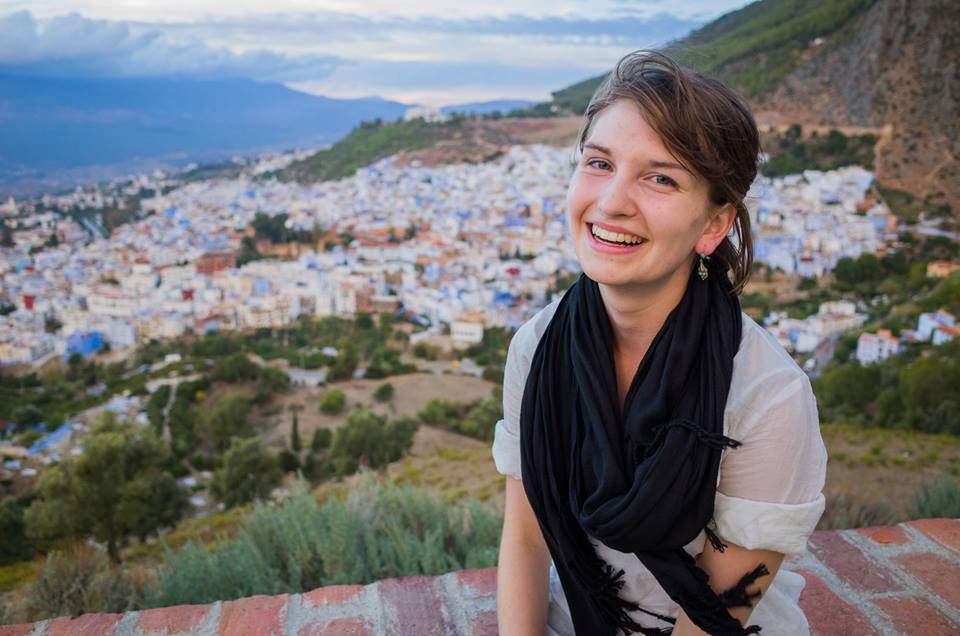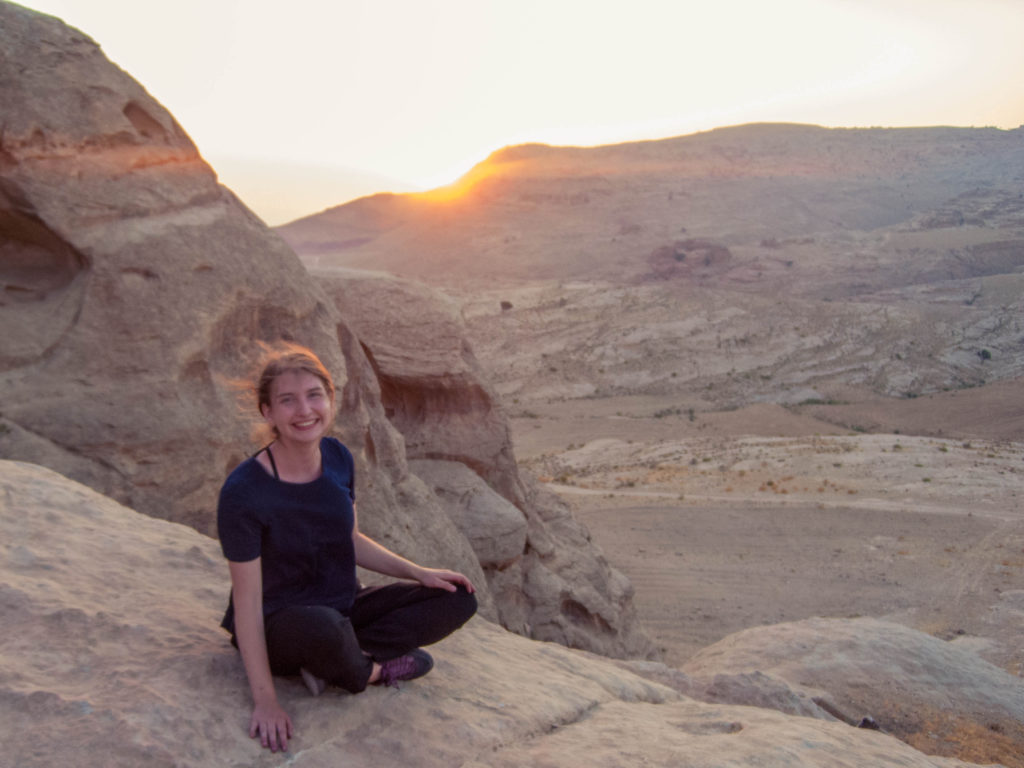
The Thomas J. Watson Fellowship is a one-year grant for purposeful, independent exploration outside of the United States. Fellows are graduating seniors nominated by one of 40 partner colleges who design original travel itineraries to areas where the student has not previously lived or studied for a significant length of time. Rather than a year “off”, the Watson is considered a year “on.” It is a chance to synthesize ideas, organic to your own interests, on a world scale. The selection committee looks for qualities in candidates including leadership, imagination and emotional maturity. Fellows receive a stipend of $30,000 as well as health benefits to undertake their travels.
To learn more about this unique opportunity, we interviewed current Watson Fellow Laura Humes, who so far has traveled to Jordan, Greece, Serbia, and Germany.
1. What inspired you to apply for the Thomas J. Watson Fellowship?
Throughout my life, I’ve engaged with various groups of immigrants, refugees, and asylum seekers. I’m interested in what it takes for people to thrive, and how we can build pathways towards strong, dignifying, and just communities that recognize all members’ unique subjectivities and strengths. I’ve always asked myself, how can we transform challenging conditions to promote community development? In college, I had the opportunity to engage with this question through projects that took me to refugee camps in Rwanda and Uganda. These experiences, as well as interactions with refugee communities in the U.S., encouraged me to continue working with displaced people to seek answers and identify opportunities.
I feel most fulfilled when I engage directly with people, and was excited by the opportunity offered by the Watson Fellowship to build relationships and gain insight through an immersive, experiential, comparative experience. The Watson Fellowship is multi-country in nature, and in some respects, mirrors the networked, transnational aspects of migration. Given this, I was excited for the opportunity to use the privilege of my mobility as a fellow to bridge experiences and learnings between the various communities I planned to engage with across the year. Ultimately, I hope to absorb insight from all my encounters across the year to enrich my perspective as I move forward.

2. What have been some of the most eye-opening moments during your fellowship?
The Watson Fellowship is, by design, flexible and fluid. No two days look the same. I’ve had the freedom to engage with various communities, initiatives, and projects, and to learn through experience and build rich connections. I’m particularly interested in how themes of identity, representation, and agency play out along asylum routes among migrant communities, and have engaged both with refugee-led groups as well as humanitarian organizations to gain insight from their work.
In my experience so far, there have been many moments that surprised me, challenged me, and motivated me. The discourse around the refugee crisis tends to frame displacement in terms of “withouts”—without a home, without a country, without a future. But the experience of engaging with communities of displaced people has shown me that the world is so much more abundant than is readily apparent. To me, an abundance mindset is about looking at the world in a way that unveils possibility and richness in challenging situations, and leveraging that richness to expand the margin of opportunity for positive outcomes. I’ve been lucky to experience many examples of this throughout my journey so far—from getting to know the leaders of a refugee-led youth mentorship program in Za’atari camp in Jordan, to accompanying Syrian and Iraqi youth to their first day of formal school in Greece, to witnessing collaborative efforts between German citizens and recent arrivals to promote social integration and build community in Berlin. These experiences affirm my belief that resolutions will emerge if we tap into the inherent richness of communities. No doubt, there is a lot of work to do, but I feel confident that much is possible.
3. What tips would you give others applying to the Thomas J. Watson Fellowship?
The Thomas J. Watson Fellowship is awarded to about 40 graduating seniors from partner colleges each year. The fellowship is designed to provide an opportunity that is not strictly academically or professionally focused, but rather, is immersive, iterative, and experiential in nature. Fellows propose projects oriented around their unique passions. It’s an opportunity to gain insight, experience, and perspective. Applicants propose a project to their campus nomination committee in the fall and undergo a campus interview process before being nominated to the national competition. In the winter, candidates are interviewed by a Watson fellowship alumni, and the national committee announces the final group of fellows in the spring.
Projects are diverse and wide-ranging, tending to follow a natural progression from a student’s past engagement with a topic they’re passionate about. The previous Thomas J. Watson fellow from my college investigated community radio on different continents, and the other current fellow from Macalester is exploring math competitions around the world. The high degree of independence and the ownership fellows have to shape their year makes this fellowship truly distinct. A strong candidate will demonstrate how their project is connected to their passions and aspirations, show a high degree of self-motivation, and effectively convey why they are uniquely positioned to deepen their insight through a year of independent travel and exploration.
Interested in applying? Bookmark the Thomas J. Watson Fellowship to your ProFellow account to stay in touch with this unique program.
Laura Humes grew up in Seattle, Washington and graduated from Macalester College in 2016 with a degree in environmental studies, and minors in psychology and political science. She enjoys creative writing, street photography, and New York Times crossword puzzles. Her interests revolve around the intersection of human rights and sustainable development, and she is a current Thomas J. Watson Fellow who so far has traveled to Jordan, Greece, Serbia, Germany, Tanzania, Myanmar, and Thailand.
© Victoria Johnson 2017, all rights reserved.